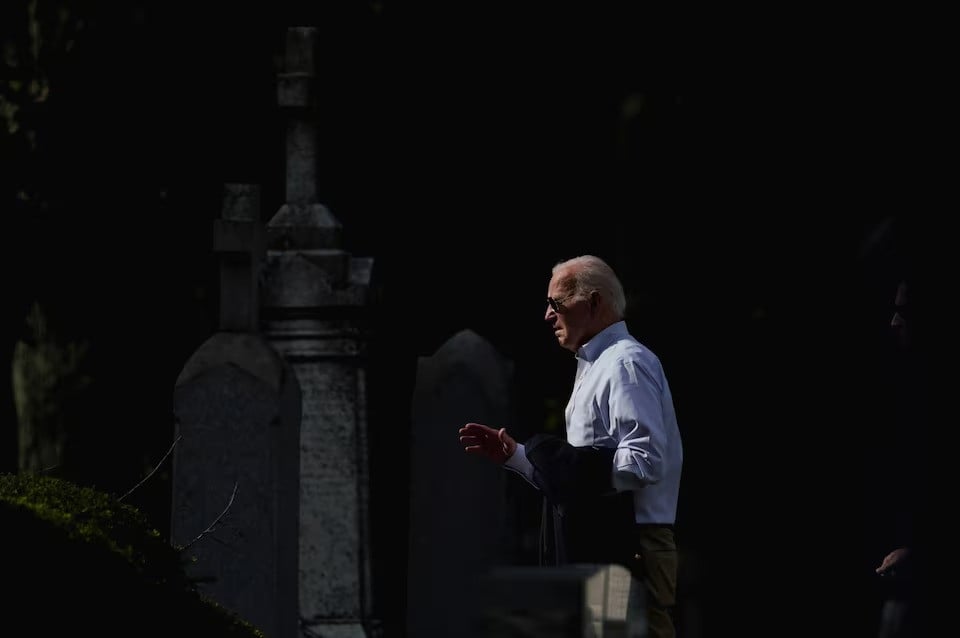
US President Joe Biden expressed hope that Iran would refrain from escalating tensions despite its threats to retaliate for the assassination of Hamas leader Ismail Haniyeh in Tehran.
Concerns are growing that the ongoing conflict between Israel and Palestinian militants in Gaza could expand into a broader Middle East conflict.
Tensions in the region have increased significantly following the assassination of Haniyeh on Wednesday. This event came just one day after an Israeli airstrike in Beirut killed Fuad Shukr, a senior commander of Hezbollah. Both Iran and Hamas have blamed Israel for Haniyeh's death, vowing revenge alongside Hezbollah. Israel has not confirmed or denied involvement.
When asked on Saturday whether Iran would stand down, President Biden replied, "I hope so. I don’t know." In response to growing threats from Israel’s adversaries, the Pentagon announced plans to deploy additional fighter jets and Navy warships to the Middle East.
Haniyeh's assassination is the latest in a series of targeted killings of senior Hamas figures as the Gaza conflict nears its 11th month, raising fears of a broader regional war.
Hamas on Saturday announced it had initiated a “broad consultation process” to select a new leader following Haniyeh’s assassination, who was key to the group's international diplomacy efforts.
The US, alongside international partners such as France, Britain, Italy, and Egypt, engaged in diplomatic discussions on Saturday to prevent further escalation in the region.
The US advised its citizens wishing to leave Lebanon to prepare to do so immediately, while the UK and Canada issued travel advisories warning against visiting Israel and Lebanon due to security concerns.
1725354252-0/Untitled-design-(5)1725354252-0-405x300.webp)
1732099866-0/adele-(3)1732099866-0-165x106.webp)




1732079997-0/BeFunk_§_]__-(7)1732079997-0.jpg)


1732090878-3/Untitled-design-(22)1732090878-3-270x192.webp)







COMMENTS
Comments are moderated and generally will be posted if they are on-topic and not abusive.
For more information, please see our Comments FAQ